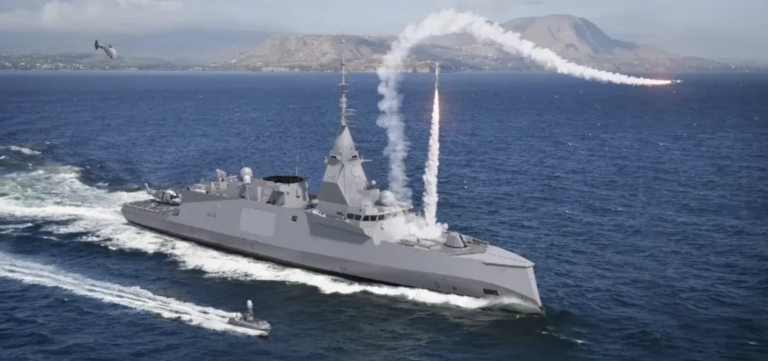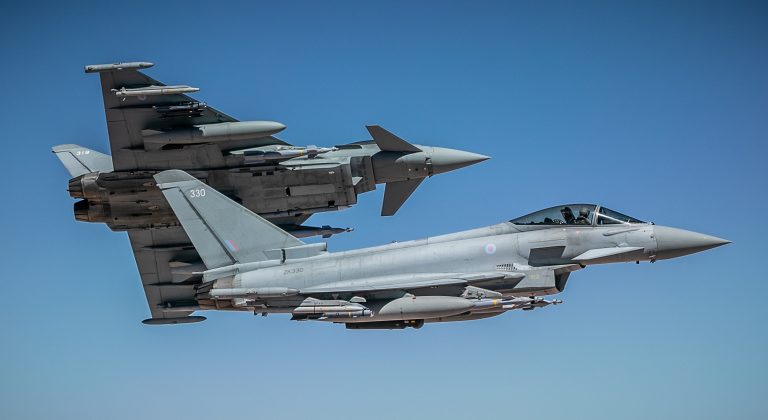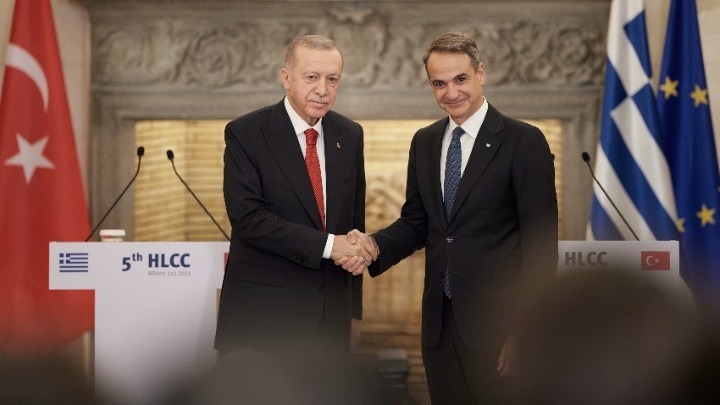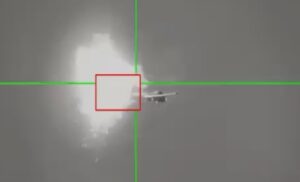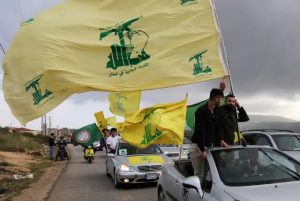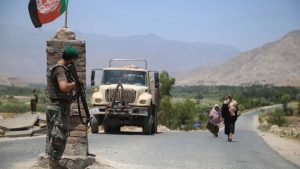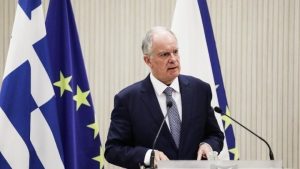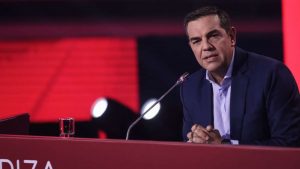In joint statements with Turkish President Recep Tayyip Erdogan after their meeting in Athens on Thursday, Prime Minister Kyriakos Mitsotakis told a press conference that this was “a truly special day, as the High-Level Cooperation Council of Greece and Turkiye is convening once more after seven years.”
“A fact that in itself, I think, signals the intention of our two countries to seek new, creative paths in the relations between them,” he added.
In the time that had intervened, Mitsotakis said, “We faced unprecedented challenges that know no borders,” highlighting that these included the three-year pandemic, a war in the heart of Europe that caused an energy, inflation and food crisis, as well as major natural disasters and regional conflicts that raised grave concerns.
“Our bilateral relations also have seen ups and downs, which at times posed a dangerous threat to them, and alongside them to security and peace in the Eastern Mediterranean,” Mitsotakis said, stressing the great importance of the fact that the two countries have been “treading a more tranquil path” in recent months.
“Greece and Turkiye, Turkiye and Greece have an obligation to live peacefully. To state their differences, which are known, to discuss them with sincerity, and to constantly seek solutions. And, even if they cannot be bridged, to not automatically generate tension and crises,” he stressed.
Mitsotakis noted that in their meeting in Vilnius, they had decided with Erdogan to begin contacts once again on three levels, that of political dialogue, a positive agenda, and confidence-building measures. Reviewing the previous two meetings, he said that an assessment was now underway of the joint efforts and the progress that had led to a series of important agreements on many levels, in electricity, trade, education, sports, technology, tourism, closer economic ties and promoting a shared understanding and an exchange of best practices in agriculture, research and innovation.
“Regarding migration, we noted a significant reduction in flows over the recent period as a result of the systematic protection of our land and sea borders. I would add, however, that it is also due to the improved cooperation of the police, coast guard and harbour police of the two countries,” Mitsotakis said, while noting that this cooperation can and should be further improved.
“Regarding Greece’s steadfast support for Turkiye’s EU accession course, our country supports the facilitation of granting visas, though always within the framework of the European acquis, so that the younger generation in Turkiye, the scientists, business people and students can build closer ties with Europe. In addition, Greece has asked for and secured the European Commission’s approval to activate the possibility for Turkish citizens and their families to visit 10 of our islands for seven days throughout the year, which either have refugee facilities or have direct ferry links with Turkiye,” the prime minister said. He noted that this was an initiative that sends a strong message and states a great truth, namely “that the Greek islands are a bridge of communication and friendship between the two countries.”
Mitsotakis: ‘We have a duty to bring our two states side by side’
Welcoming Turkiye’s president to Athens during joint statements after their meeting on Thursday, Prime Minister Kyriakos Mitsotakis emphasised that they have a duty to future generations to build a future of calm and peace between Greece and Turkiye.
“…we should make use of this opportunity to bring the two states side by side, as our borders are. Up until now, we have succeeded in returning our relations to calm waters. Today, in the name of the generations that follow, we have a duty to both build a future that allows a following wind to blow in these calm waters, a future of peace, progress and cooperation,” he said.
Continuing joint statements with the Turkish president, Mitsotakis said they had discussed worrying international developments in the region and further afield, such as those in the Middle East, Ukraine and Caucasus.
“We are obliged to always converge on the need to uphold international legality. To condemn, in other words, every form of aggression, extremism and terrorism regardless of the form it takes. To a full respect of the territorial integrity of states and the protection of humanitarian values, with special emphasis on the protection of civilians,” he said.
Regarding Cyprus, Mitsotakis noted that there was disagreement and said there can be no solution other outside the resolutions of the UN Security Council, adding that dialogue must resume from the point where it was interrupted in 2017.
Referring to the Athens Declaration signed by the two leaders on Thursday, Mitsotakis said an agreement on friendly relations and good neighbourliness had been signed by the two countries 100 years after the historic Lausanne Treaty, one which fully respected the rights arising from the sovereignty of each country while outlining the principles and milestones of dialogue between them and highlighting the potential for cooperation.
He noted that these will govern the next steps in meetings between the Greek and Turkish delegations, in order to broaden the positive agenda. “We will intensify our economic cooperation, we will expand the confidence building measures and the next phase of political dialogue, when the conditions are ripe, may be a rapprochement on delineating the continental shelf and Exclusive Economic Zones in the Aegean and Eastern Mediterranean,” he said, noting that this was the sole difference that Greece considers can be settled through international arbitration, based on international law and the law of the sea.
Mitsotakis said they had also agreed with Erdogan to continue the meetings between them, expressing his willingness to visit Ankara in the spring, ahead of their meeting at the NATO summit in July.
Concluding, he pointed out that geography and history have consigned Greece and Turkiye to live in the same neighbourhood, that events had often brought the two countries into confrontation with one another and that there were voices in both Greece and Turkiye “that do not agree with this approach”.
“I feel a historic duty, however, that we should make use of this opportunity to bring the two states side by side, as our borders are. Up until now, we have succeeded in returning our relations to calm waters. Today, in the name of the generations that follow, we have a duty to both build a future that allows a following wind to blow in these calm waters, a future of peace, progress and cooperation. Displaying responsibility and realism, I want today to look toward the future,” the Greek premier concluded, welcoming Erdogan to Athens.
Erdogan: Let us develop the positive climate between our countries further
Türkiye’s will to further develop the positive impetus between Greek-Turkish relations was expressed by Turkish President Recep Tayyip Erdogan in statements following his meeting with Greek Prime Minister Kyriakos Mitsotakis in Athens on Thursday.
Erdogan underlined that this intention was proven by the convening of the 5th High Level Cooperation Council between the two countries after seven years. Further reflecting the good climate of contacts, the Turkish leader mentioned that the Declaration of Athens on Friendly Relations and Good Neighbourliness confirmed the willingness to develop bilateral relations. Specifically, he also proposed that Greece and Türkiye hold the High Level Cooperation Council at least once a year, adding that this is something that would benefit both countries.
“We are two countries that share the same sea, the same geography, the same climate, and especially the same culture in several sectors,” Erdogan said, adding that it is natural for problems to occur between two countries, let alone siblings. The issue, he underlined, is the willingness to resolve problems and differing opinions. Under this angle, he noted, “we want to turn the Aegean Sea into a sea of peace and collaboration.” As Erdogan additionally noted, “We wish to become an example to the world by the joint steps we will take as Türkiye and Greece. I say this openly, there is no problem between us so great that it cannot be resolved, as long as we act in good faith and focus on the large picture, and not become like those who traverse the sea but drown in the river.” Additionally, the Turkish leader expressed satisfaction that, as he said, “Mr. Mitsotakis has the same view.”
At the start of his statements, the Turkish president said he was very satisfied to be in Athens again for the meeting of the 5th High Level Cooperation Council.
Referring to his meetings with Greek President Katerina Sakellaropoulou and Prime Minister Kyriakos Mitsotakis, Erdogan said they were beneficial. In terms of his meeting with Mitsotakis, he mentioned that they discussed steps that could be taken towards growing bilateral cooperation. In the context of continuing the high-level contacts, the Turkish president said that they underlined keeping the channels of communications open, while they also underlined that the mechanism of the Supreme Military Council of Greek-Turkish Cooperation contributes positively to promoting relations in the context of the Positive Agenda.
In addition, in the talks he had with Mitsotakis, Erdogan said they exchanged views on the Aegean and the East Mediterranean, and added that they had requested of Foreign Ministers of their countries “to discuss them in a decisive manner.” In this context, he said that their sincere wish is that they resolve standing issues through joint efforts, in the context of constructive dialog of good neighborliness and international law.
The Turkish president paid special emphasis in economic relations, revealing that “we have agreed to raise bilateral trade to 10 billion dollars, from 5 billion dollars today.” He also related that during his meeting with Mitsotakis they stressed the importance of transportation projects, such as the construction of a second bridge at the Ipsala-Kipoi border station, while adding that Türkiye’s will is to develop relations with Greece in tourism and cultural sectors as well.
Erdogan mentioned that they discussed developing their collaboration in fighting terrorism. “I expressed once again our expectation in fighting terrorism and welcomed the shutting down of the Lavrio camp. I underlined that caution is needed so that similar camps that provide refuge to terrorists in Greece are not set up,” he said.
The Turkish president then referred to minorities, calling the Greek Muslim minority in Greece “Turkish”. He said that the increase and peacefulness of minorities will influence Greek-Turkish relations positively, while Greece expects “the improvement required by international law in terms of the situation of the Turkish [i.e. Muslim] minority of Western Thrace.” Mitsotakis responded at the end of Erdogan’s speech, clarifying that the definition of the identity of the minority as Muslim is set out by the Lausanne Treaty: “Our duty in this climate of peaceful coexistence, a duty of the Greek state of law, is to safeguard and strengthen it. And I want to assure you, and of course assure all of our fellow-Greeks who are Muslims, that the Greek government will continue to work in this direction day and night,” Mitsotakis added.
In terms of the Cyprus issue, the Turkish president referred to the need for a just, permanent, and sustainable solution based on the realities on the island that will benefit the entire region.
The Greek and Turkish leaders also discussed regional and international relations. In terms of Gaza, in particular,
Erdogan said that Türkiye does not approve under any circumstances of targeting civilians, and said, addressing the international community, that it must not keep silent against “crimes against humanity and war crimes carried out.” He added that “the founding of an independent, sovereign Palestinian state with territorial integrity on the 1967 borders is now unavoidable,” and stressed that Türkiye is prepared to assume responsibility as guarantor power toward the implementation of a just peace.
In conclusion, President Erdogan extended an invitation to PM Mitsotakis to Ankara for the next high level council meeting.

